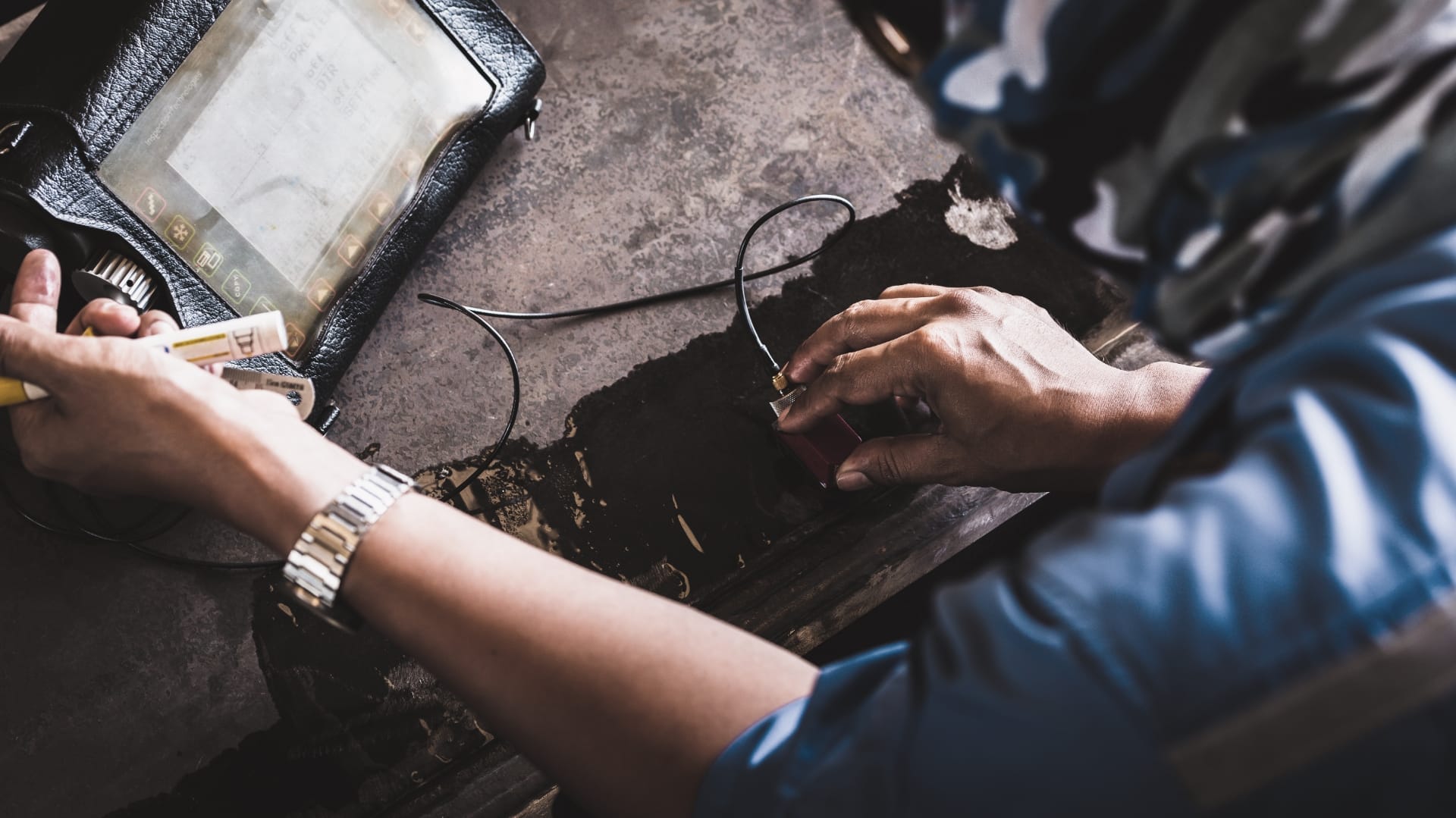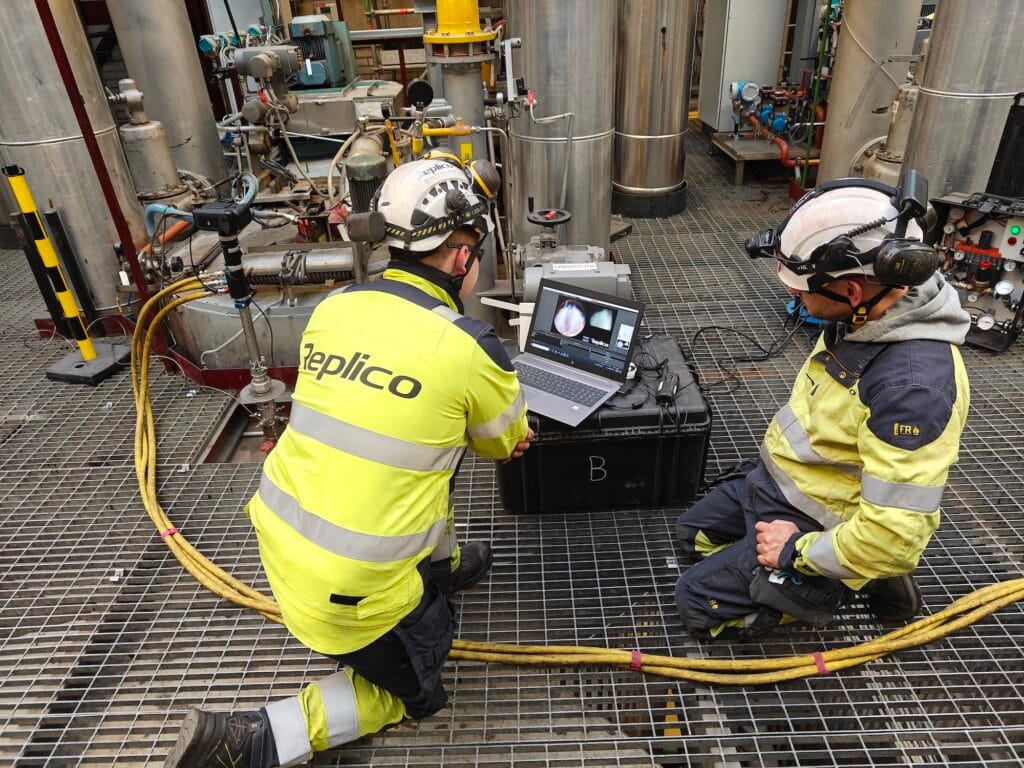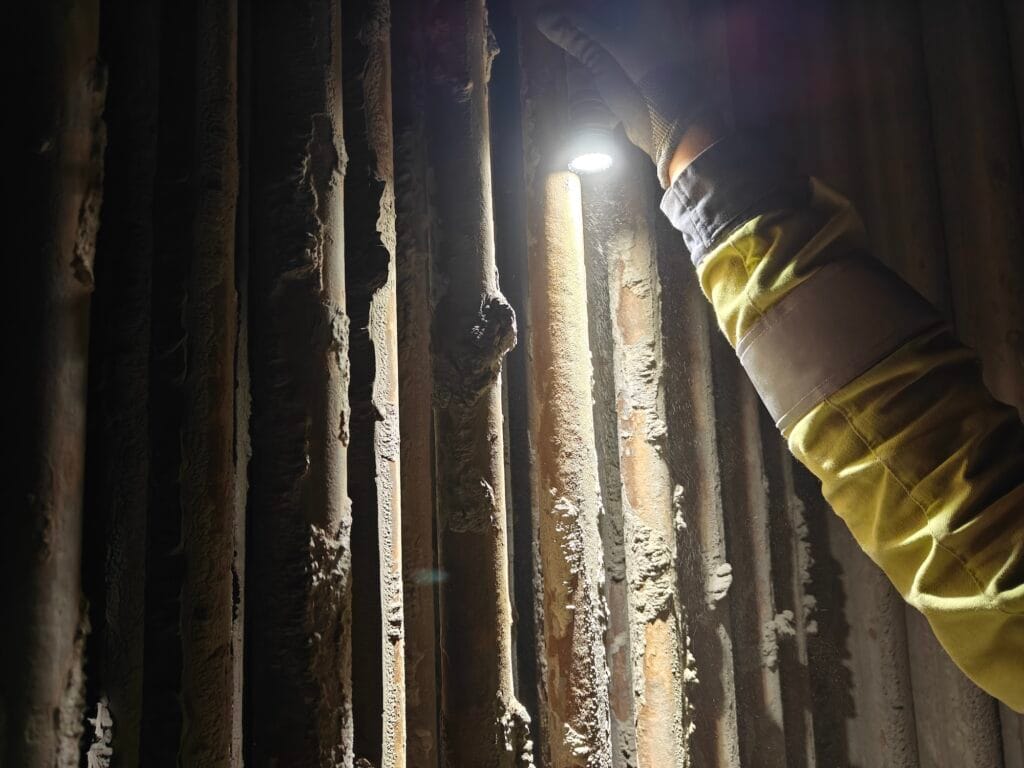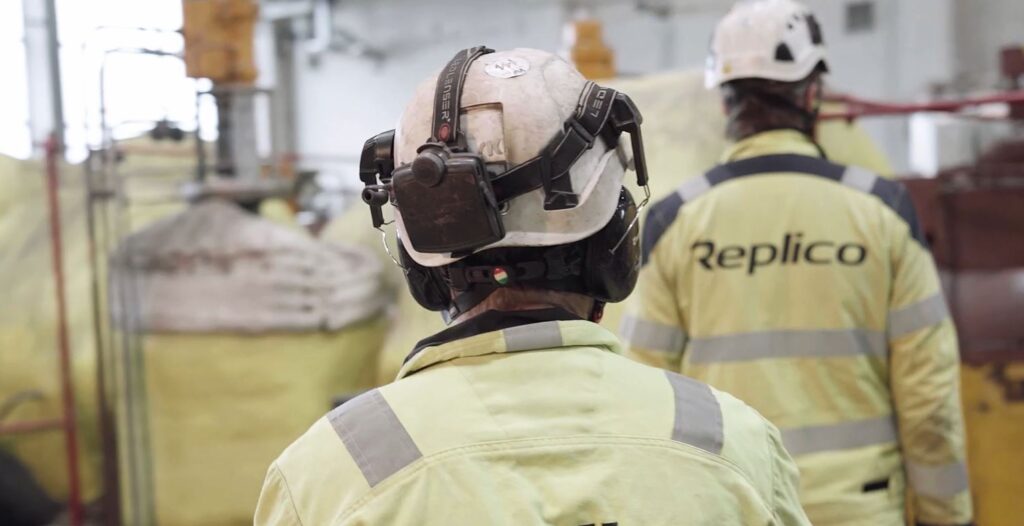Replication inspections play an essential role in planning the replacement needs of equipment and its components and in managing quality during manufacture. When is it time to take corrective action or invest in a completely new component?
Replication inspection is a form of life cycle inspection that examines the remaining life and condition of components in production equipment. It is often applied to components dimensioned for creep strength and operating at high temperatures.
Replication inspection is a non-destructive method for examining changes in the microstructure of metallic structures during operation, such as creep or degradation, which predispose the structure to deterioration at a later stage.
The results of the inspection are compared with industry guidelines and standards and with the results of the previous inspection, allowing recommendations to be made on the action to be taken. This also allows the timing of the next inspection to be determined.
Why are replication inspections necessary?
Keeping components functional and safe is critical in production facilities where high pressures and temperatures are encountered. Component failure can lead to unpredictable, sudden events that interrupt production, incur costs and expose people to injury.
Timely replication inspections ensure that the next driving season runs safely and without production stoppages. Replication inspections provide reliable information on the condition of components by detecting structural and micro-material changes that are not detectable by traditional NDT or visual inspection methods.
The information on the condition of components provided by replication inspections is therefore important from several points of view:
- Unexpected situations are avoided. Repairs and purchases can be scheduled correctly and the entire life cycle of the components can be used efficiently.
- Unnecessary interruptions in production caused by breakdowns are avoided.
- The safe use of equipment and components is ensured.
All of this improves the cost-effectiveness of production. When components are reliably in good condition and the inspection sequence is set at the optimum level, production runs smoothly and predictably, also in terms of costs.
The replication inspection process from preparation to conclusions
Replication inspection does not require breaking the structure of the component, but a sample is taken by copying the microstructure of the object to be inspected for further analysis. The objects to be inspected are carefully selected based on inspection history, available process data and an assessment of external environmental loads.
- First, the target is prepared so that the microstructure is visible.
- The microstructure of the component is replicated using a preferred method.
- The resulting replica is examined under a microscope to detect any microstructural changes in the metal and to investigate the various failure mechanisms.
- The results are analysed and the necessary conclusions are drawn.
Based on the replication inspection, recommendations are made to the customer on how to react to the results. If the situation is good, it is sufficient simply to set a date for a follow-up inspection. If, on the other hand, the fault is more advanced and cracks are found, recommendations are made to replace or repair the components.
Benefit from Replico’s expertise in replication inspections
Replication inspections are one of our core services where our expertise is very strong. Our many years of experience and knowledge of the processes enable us to provide the best practices for carrying out inspections. We target inspections where they are needed, rationalise the number of inspections and act as impartial, self-directed professionals to assist our clients.
Our primary objective is always the client’s best interest. For replication inspections, we analyse the samples in the field to ensure that the client receives the results quickly. We also focus on high-quality reporting so that the results can be easily used for future comparisons.
We are an impartial Finnish specialist in field metallurgy. If you are interested in our services, please contact us and we will tell you more.
» Call us or send us a message




